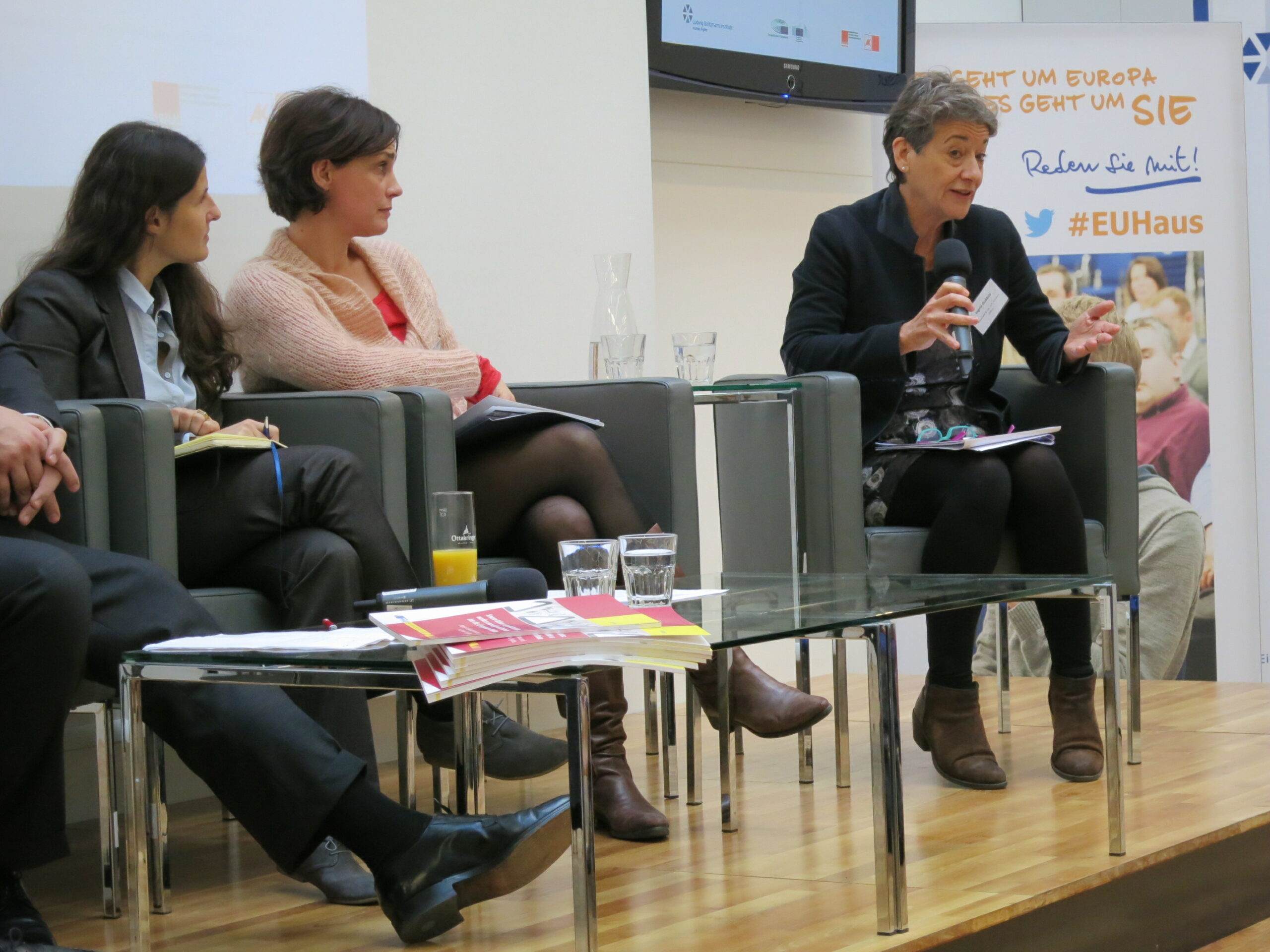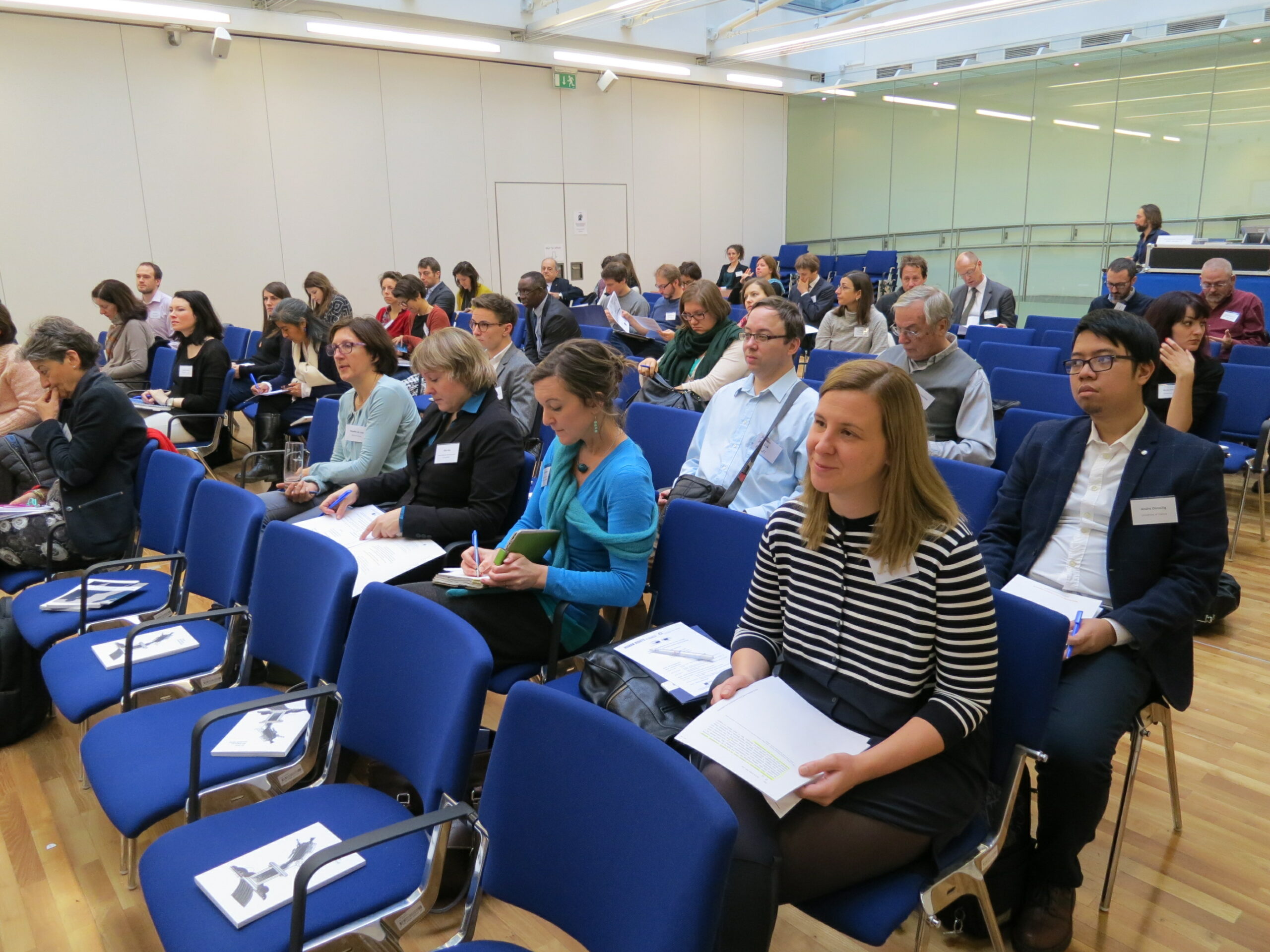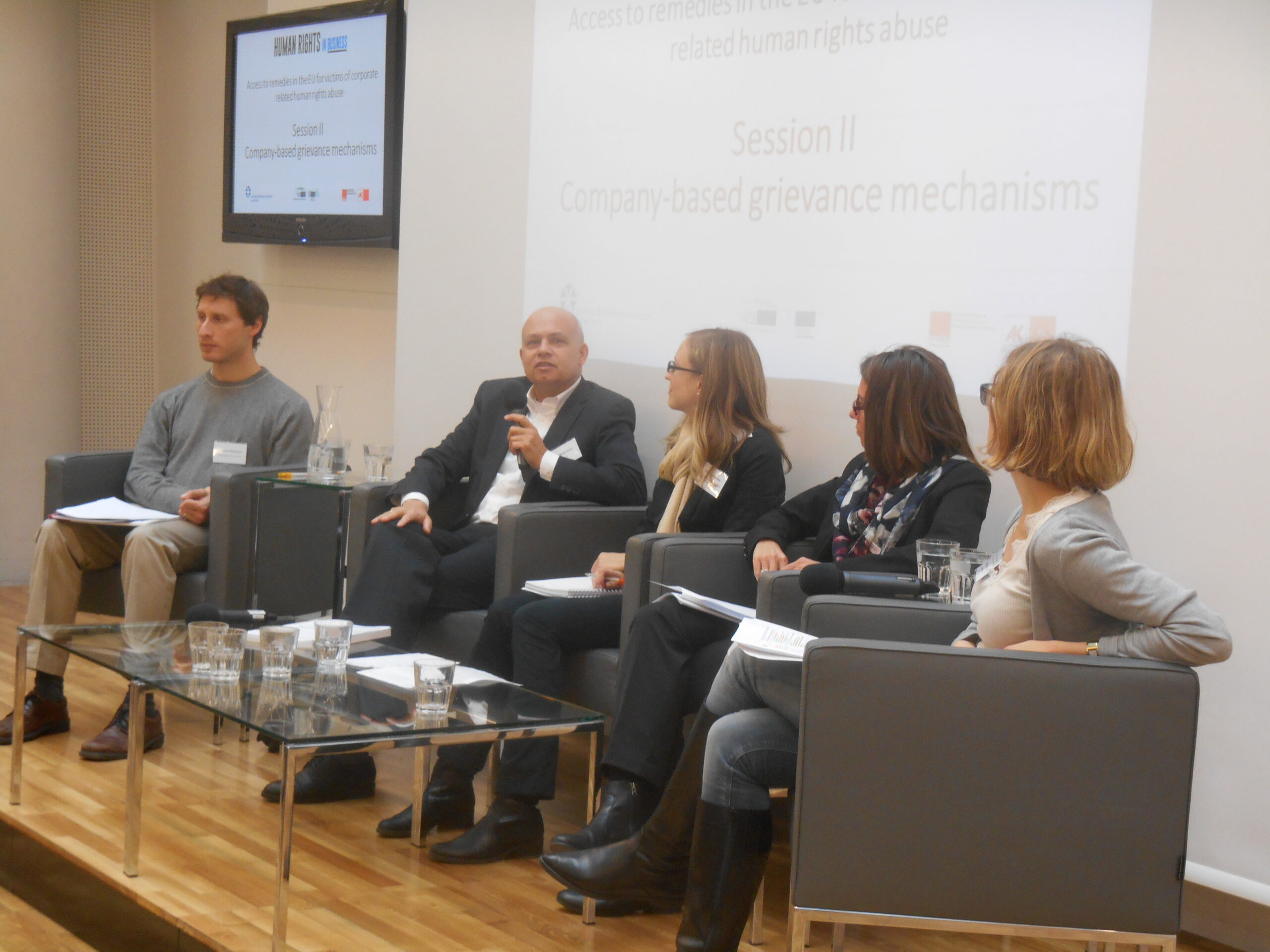Training Session: Access to remedies in the EU for victims of corporate related human rights abuse
On 16 December 2015, academics, NGO and company representatives, lawyers and judges gathered in the Haus der Europäischen Union in Vienna to discuss the access to remedies in the EU for victims of corporate-related human rights abuse.
The Training Session was organised by the Ludwig Boltzmann Institute of Human Rights (BIM) in the context of the EU-funded project Business and Human Rights challenges for cross-border litigation in the European Union. The objective of this Training Session in Vienna was to inform about current legal possibilities and challenges and to provide a forum for discussion between project researchers and external experts. This was the third event in the course of the project, with previous Training Sessions held in San Sebastian (Spain) in February 2015 and in Tilburg (The Netherlands) in June 2015 (for more information on these events see the project’s YouTube channel).
After welcoming remarks from Brigitte Luggin (European Commission, Representation in Austria), and representatives of the two institutions co-financing the project in Austria (Austrian Federal Ministry of Labour, Social Affairs and Consumer Protection; Chamber of Labour Vienna), Karin Lukas (BIM) outlined the most important legal questions and practical difficulties in ensuring access to remedies for victims. Matters of jurisdiction, the “corporate veil” and other barriers to the judicial procedure create an “accountability gap” which calls for other avenues for justice, in particular non-judicial grievance mechanisms. Project manager Katerina Yiannibas (Globernance Institute for Democratic Governance) introduced the audience to the research project and encouraged active engagement via the project’s website.
The first panel, chaired by Julia Mair (Dorda, Brugger, Jordis Rechtsanwälte), focused on the challenges for victims’ representatives and national jurisdictions in dealing with cases before European courts. Albin Dearing (European Union Agency for Fundamental Rights), Ingrid Gubbay (Hausfeld & Co. LLP, London office), Yvonne Veith (European Center for Constitutional and Human Rights) and Georg Kodek (Austrian Supreme Court; Vienna University of Economics and Business) provided input from their work and gave insights into practical difficulties, legal gaps and possible litigation strategies.
The second panel, chaired by Katharina Häusler (BIM), discussed the advantages and disadvantages of company-based grievance mechanisms and their relation to judicial and other judicial remedies. The panellists – Karin Lukas (BIM), Wolfgang Kraus (IPIECA), Zuzanna Muskat-Gorska (ITUC), Jonathan Kaufman (EarthRights International) – agreed that these rather new forms of grievance mechanisms had great potential but required a diligent set-up, involving all stakeholders concerned, in particular the (potential) victims. In any case, they cannot replace a functioning judicial system, offering remedies through civil or criminal proceedings. Both sessions included a plenary discussion, allowing participants to raise questions to the panellists.
The Training Session was concluded by Nicola Jägers (Tilburg University) who briefly summarised the discussions and highlighted crucial questions.
The conference videos are available on the project’s YouTube channel. We also invite your continued participation and feedback: please follow us on Twitter (@HumanBusinessEU).
b. Audience Training Session
c. Session 1 (from left to right): Albin Dearing (FRA), Georg Kodek (Austrian Supreme Court, University of Economics and Business Administration), Julia Mair (Dorda, Brugger, Jordis law firm), Yvonne Veith (ECCHR), Ingrid Gubbay (Hausfeld & Co. LLP)
d. Session 2 – Company-based grievance mechanisms and its advantages and disadvantages, (from left to right): Jonathan Kaufman (EarthRights), Wolfgang Kraus (IPIECA), Katharina Häusler (BIM), Karin Lukas (BIM), Zuzanna Muskat-Gorska (ITUC)



